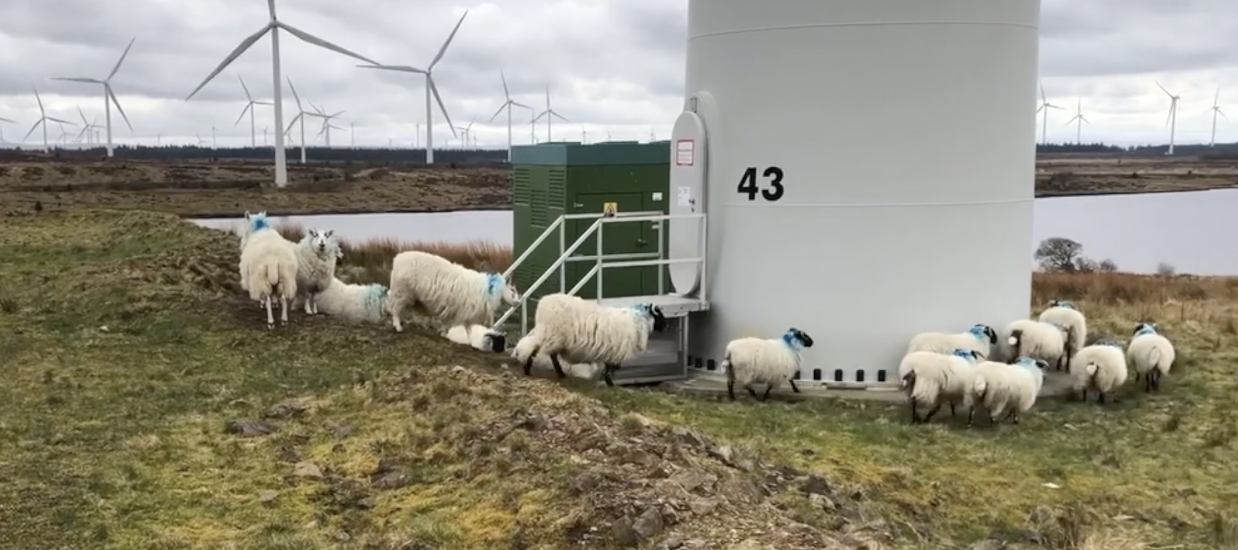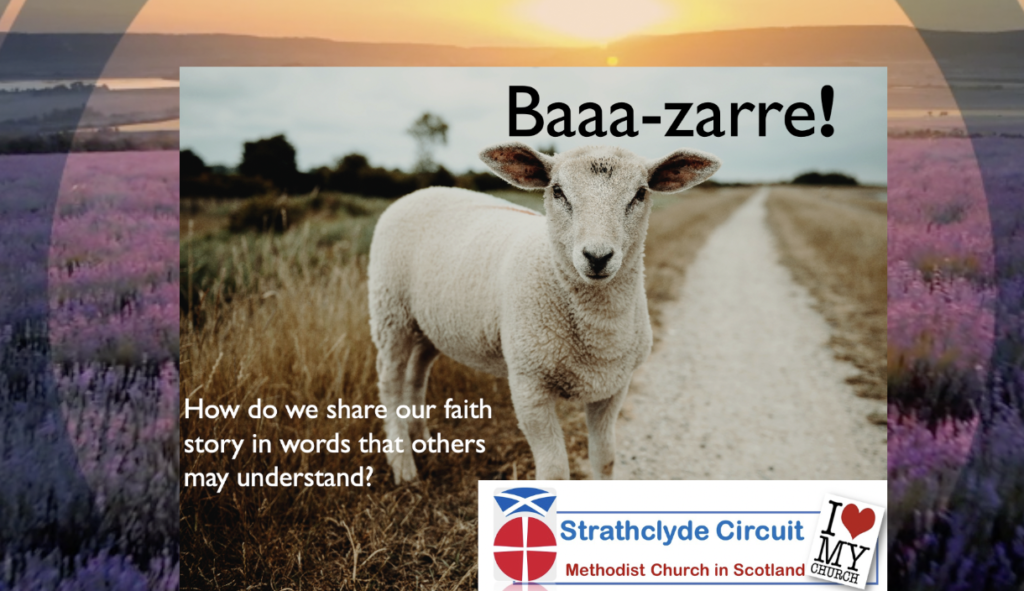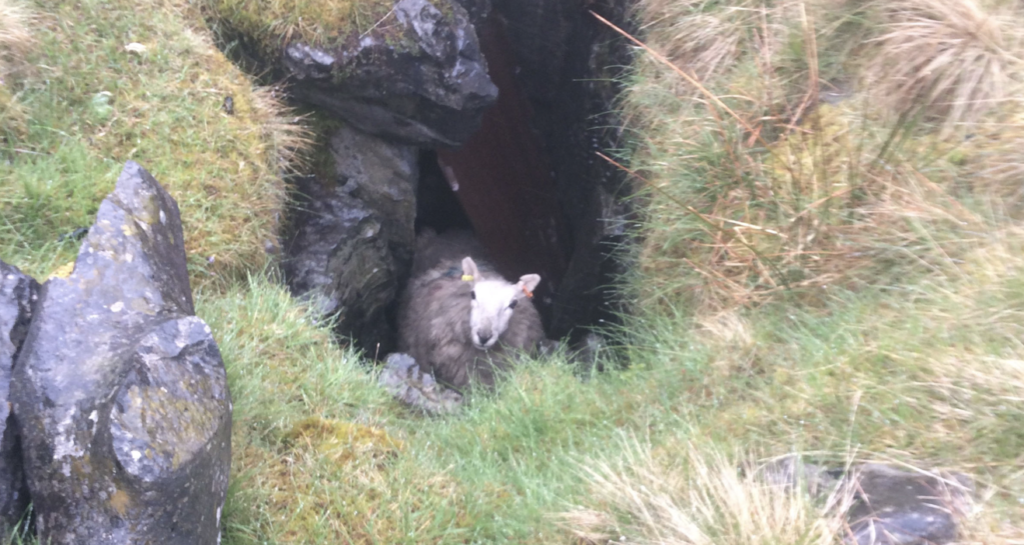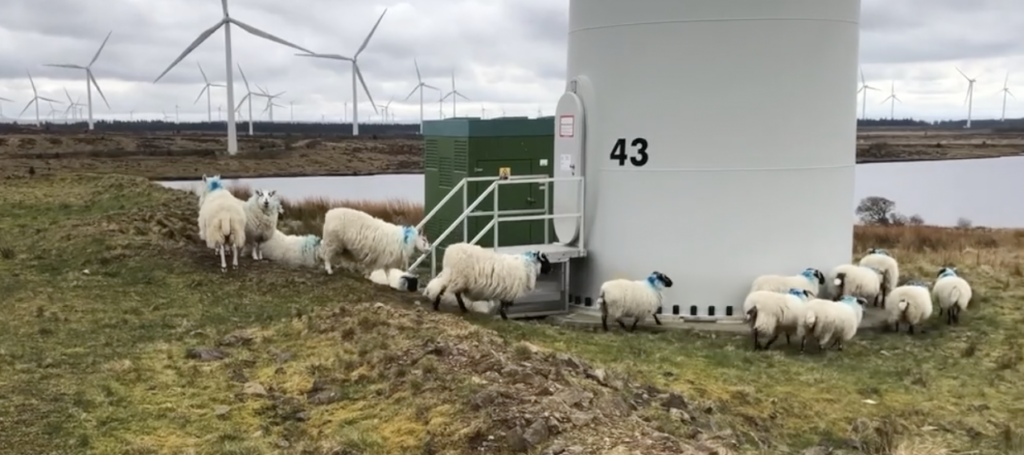

As we look together at stories of ordinary people, both now and throughout history who have seen the power of God working in their lives, we will focus on conversation, the type of conversation we have day-to-day and how we can live our everyday lives. This is a transcript of the online video available here: https://youtu.be/C7pGRZtcKcA
Let’s start with a paraphrase from John’s Gospel:
Everyone was having a great time in the city despite the cold weather. The locals of the city were demanding that Jesus tell them straight : “was he the great one, the Messiah?” Jesus told them “I have already told you, I have done astonishing things, my actions speak louder than words but you don’t seem to cotton on to it at all. My sheep recognise my voice: I know them and they follow me. What I promise is a living complete relationship with God. No one can take that away from anyone – it’s an offer no one else can beat. God & I are as one”

The Farmer’s Voice
[Bob] Have you ever wondered whether sheep really can recognise human voices? That sounds baaa-barre! Our cat Tilly seems to respond to food and a potential lap, not our voice. So let’s ask an expert. Welcome Roger and Jen from…well could you say where exactly are you?
[R&J] Marwood, North Devon, a few miles from Barnstaple.
[Bob] You’ve had great experience as sheep farmers over the years so
- How do sheep recognise your voice?
[R&J] The one word that comes over loud and clear to us is TRUST we build a relationship with our sheep, we see them daily, they get to know us, and that leads to TRUST. And the Sheep definitely do recognise our voice! We didn’t use whistles, ours were usuals voice commands to the dogs, and the voice call to the sheep. The tame sheep, that I reared on the bottle from babies had names, and they recognised their names when I called them.
- Do the sheep recognise the dog’s bark more than a human voice?
Border Collies don’t usually bark, but the sheep always know the farm dogs, if a strange dog comes into the field their reaction is to gather together in a flock as that dog is perceived as a threat …. but the farm dogs aren’t because they know them.
- Would the sheep recognise you as a person?
The sheep definitely recognise us as their people, if we walk into the sheep house at lambing time, they don’t move, but if a stranger walks in, totally different reaction from the sheep
- Would the sheep survive long in the field alone?
Sheep are flock animals, so don’t like being alone, they need the company of others. They enjoy being in community, they know their shepherd, and they trust us. So if we spend time with Jesus, get to know him, build up a relationship, that leads to trust …..
[Bob] Thank you so much Roger and Jen for your time and expertise to help us understand the language that we use, to explore more deeply “My sheep hear my voice”. Perhaps it doesn’t sound baaa-zarre after all!
Student’s Voice
Next it is Kate! Hi, could you briefly explain what you are studying currently and where?
[Kate] So I study at the RCS Conservatoire in the city centre, and I study contemporary performance practice. So anything and everything in contemporary theatre, I can get my hands on basically.
[Bob] So even in these Covid times, that means a lot of conversation: either one-to-one or online. Can I ask: our prayers can be full of heavy religious phrases such as sin, repentance and grace: how do you speak of your faith today?

[Kate]It comes out in the ways you act. And often actually I talk about my faith when there’re problems or, something’s gone wrong. If there’s an argument or if there’s something going on in the university that people don’t agree with, what do you think, how would you react? Is an opportunity to speak about faith. I was remembering a moment that happened in my first year with someone not knowing whether to essentially call out something that they didn’t agree with. How does that work for me with a Methodist faith? I believed in love enacted through justice and grace. I think particularly in younger circles, more liberal and progressive circles, I think people are very conscious of how, particularly words such as sin, concepts of purity, I think, they have been taken away from their scriptural meaning that I think most Christians have an understanding of sinners about action. But actually, I think, particularly sin, has become co-opted to be about making people ashamed around identity around things, they can’t actually control that it’s about who you are, instead of what you do. So I think, for me, I’m definitely cautious about. using language such as sin or purity around people my age, because I know that those might have been words that have been weaponized for them, and that they might not have the felt understanding. I have that in terms of like I say, my personal faith.
[Bob] Do you intentionally change the way you might speak in conversation?
[Kate] I think, again, as a poet, words are ours to play with. And we speak about speaking in tongues to Gods. So yeah, why not mess with the language that we use and find our own dialect to speak to God with and then to interact with others with, like, a really bad idea, the dialect you brought in? Because what I’m hearing is that we speak on one way in church, but when we speak to other people, we speak in a way their language as well. So there’s engagement. There’s understanding between you and I as we speak, rather than in church.
[Bob] Wow, thank you Kate for that insightful take on conversation, evangelism in the modern day. Really appreciated. Thank you. It may really be a different way of thinking but again it doesn’t sound baaa-zarre after that explanation.
A typical hymn we might sing throughout the ages would be Psalm 23 which speaks of God as our shepherd: how does this resonate with you after what you have heard today?
Psalm 23 StF 481 The Lord’s My Shepherd
The local activist’s voice
[Bob] So we are here in the Pollokshaws Church kitchen discussing with Joyce where it might be a focal point again for being in the community soon. But Joyce you do a great job working across in that Hub across in Pollokshaws serving teas and coffees (not forgetting the scones and cakes). When people who may not have a faith talk of church, how would you explain it?
[Joyce]I explain it in a way that I’m part of the church because I have a true faith in the Methodist Church, and I respect all religions. Everyone has their own way of expressing their faith and if you don’t have a faith, I feel that is not a terrible thing. I try to explain that it’s love that keeps people together and to offer what Jesus really came onto the world for: to spread love and to take people’s sins away. Everybody makes mistakes in life, and sometimes people feel that they make mistakes and they can’t come to church again. I try to encourage that the church is there for them: all the time. I love my Church, I love my faith, and I try to express that to other people. To feel the warmth of a church around them. It is not about people coming to sit in church for a one hour service, it is about people knowing that the church is there for them. They don’t have to come all of the time, they might need help, and the church is there to help them.
[Bob] What I am hearing there is love and that warmth coming through – that’s fantastic. Joyce, thank you for your wisdom this morning. It’s about connecting with others – that doesn’t sound baaa-zarre at all.
Jesus and Confrontation

Mark 7: 24b-30 is powerful challenge to Jesus, one spoken in her own tongue – just as it is. I am back here on the Whitelees Windfarm, a few miles south of Glasgow. It’s quite barren and of course windy, but also beautiful. I come here to run, Mandy comes here to wander – we both pray here. [sees some sheep nearby] Ah my fellow runners… now excuse me, I wonder if I may have a word…don’t be shy. Now what did those farmers Roger and Jen have to say? Hi?The sheep don’t know my voice it would seem. But hold it, if we are all of one flock, I mean society as a whole, perhaps it’s the way we speak, the way we tell them as one comedian once said. Perhaps we need to be part of the community first, so they will know us as Christians.
“A hope becomes real when we first speak the truth about the context we are in”.
Deacon Eunice Attwood at the Newcastle Synod 2022:
Perhaps we need to relate what we say about that very context, where we are? Also sheep don’t use complicated language – no offence sheep! It is more direct. So why do we still use old fashioned terms and expect folk to understand, engage and believe? If Wesley went to the people; if Jesus encountered folk in the street, they all spoke to those people in practical ways: so will we? In the language of today.
Sharing our lives is a two way experience. We can offer our perspective but we also seek to understand the other person. To do that we take what they say, and see how that relates to what we think. We have to use a common language – baaa-zarre as that sounds.
Conclusion
We have heard from some farmers Roger and Jen about the recognition of their voice by their sheep; from Kate, who relates to her age group; and Joyce who shares her faith with so many folk as they live their lives – and that’s the key. Jesus tried to explain what he was doing to the religious folk and they failed to understand. The women in the Gospel of Mark, read by Chris, spoke direct to Jesus and he understood her language – it resonated. Possibly it could be the only time that Jesus gets a direct response – as recorded in our Scriptures – but what a reaction. She was living her life, not in a religious setting, but that conversation meant so much. As Roger & Jen said: perhaps we need to be in the community, in their community, listen to what God is saying to us and trust in God. Perhaps we might consider this next week how our language, when we speak of church, can be full of specialised words where you have to be soaked in church or Methodism to really understand – when those we speak to, share a cuppa with, just need to know it as it is – how it affects us today.
I found the dialogue interesting